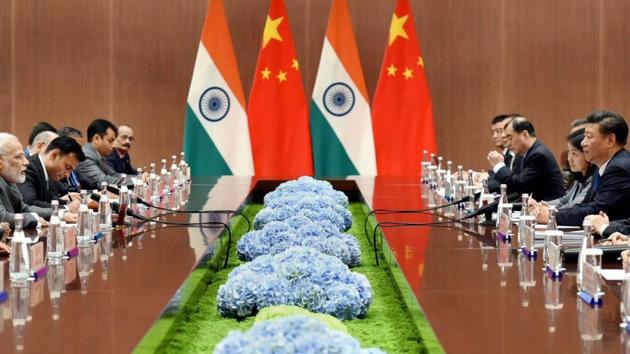Caution, pragmatism can prevent Doklam-like incidents in future
India and China must invest in institutions to maintain the present bilateral equation of no problems and no trust
All’s well that ends where things were before.

Chinese foreign minister Wang Yi has iterated the need for Asia’s two largest countries to ensure Doklam-like incidents do not take place again. In this he was repeating what Prime Minister Narendra Modi and his Chinese counterpart Xi Jinping agreed to at the BRICS summit in Xiamen. As was shown by the manner in which the Doklam standoff was brought to an end, New Delhi and Beijing understand that neither side will receive any real benefit in a genuine military confrontation.
There is considerable economic ballast between the two countries. But the fundamental reason that both sides prefer to keep their guns holstered is geopolitical. India may be economically smaller than China, but it is still large enough to cause Beijing serious problems, especially as China’s global footprint grows faster than its ability to project power to defend these interests.
However, the minister’s remarks also underline how the India and China relationship is driven by pragmatism, without a shred of sentiment or affection. He pointed fingers at India when it came to explaining why Doklam had happened, saying relations had been “affected and undermined” and implying it was up to New Delhi to do the repair work. Neither government may wish conflict, but neither sees any reason to shine sweetness and light on their ties.
The Indian Army chief’s remarks about the need to be prepared for a two-front war against both Pakistan and China are the subtext of India-China ties. While the timing of General Bipin Rawat’s remarks can be questioned given their proximity to the Xiamen meeting, they reflect a stubborn military reality that has been built into Indian strategic thinking since 1962. Pakistan and China are de facto military allies. The Indian military’s worst case scenarios with either country must presume conflict with both simultaneously. Doklam is a reminder that this hard-nosed reality has not changed.
The way forward is to build on the pragmatic calculation of both India and China that conflict is not a viable option. Therefore the two sides must work out institutions, as they have been doing over the past few decades, to ensure their run ins do not spiral out of control. At a time when both countries are accruing interests and capabilities at a rapid clip, this is a necessity to maintain the present bilateral equation of no problems and no trust.



